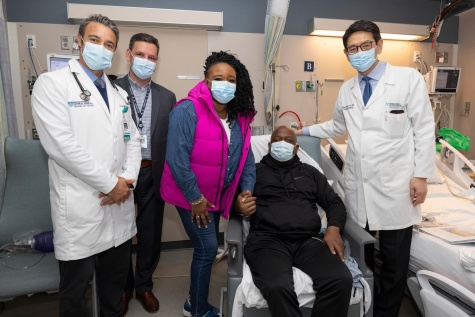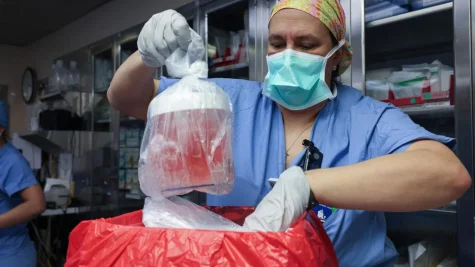
Sophia Yeskulsky | Sports Editor
May 21, 2024
Harvard Medical School physician-scientists at Massachusetts General Hospital performed a groundbreaking procedure on March 21, 2024. They transplanted a genetically edited pig kidney into a human for the first time. The patient, Richard Slayman, suffered from end-stage kidney failure due to type 2 diabetes and high blood pressure. This innovative approach, made possible by advancements in genetic editing and collaboration between academia and industry, aims to address the critical shortage of human organs for transplantation.
The kidney, provided by a biotech company co-founded by HMS scientists, was genetically modified using CRISPR-Cas9 technology to enhance compatibility with humans and reduce the risk of infection. Slayman also received monoclonal antibody drugs to suppress immune reactions against the pig tissue. The surgery resulted in immediate urine production by the transplanted kidney.

However, on May 12, Mr. Slayman tragically passed away nearly two months after undergoing the groundbreaking procedure at Massachusetts General Hospital. The transplant team at Massachusetts General Hospital expressed profound sorrow at Slayman’s passing and extended their heartfelt condolences to his family. They emphasized that there were no indications suggesting his death resulted from the transplant.
Slayman’s discharge from the hospital in April following the surgery was met with optimism, with doctors initially believing that the pig kidney could function effectively for years to come. However, they acknowledged the uncertainties inherent in animal-to-human transplants.
Dr. Tatsuo Kawai, who led the groundbreaking operation, lauded Slayman’s courage and contribution to advancing the field of xenotransplantation. Slayman’s legacy as a trailblazer in medical science will endure, with his story serving as a beacon of hope for patients, researchers, and healthcare professionals alike.
When asked about this groundbreaking medical advancement, junior Morgan Pribyl commented, “We need more brave people like Mr. Slayman because, without people like him, we wouldn’t be able to potentially save thousands of lives that come after him.” Likewise, junior Charly Treat who is currently interning at the Mission Hospital emphasized how important advancements like these are. “They give hope to the next generation.”
The field of xenotransplantation holds promise in addressing the shortage of organs for transplantation with experts actively researching safe and effective methods for transplanting animal organs into humans. Slayman’s pioneering spirit and the collaborative efforts of medical professionals and biotech companies underscore the collective commitment to advancing medical science and improving patient outcomes.

Leave a Reply